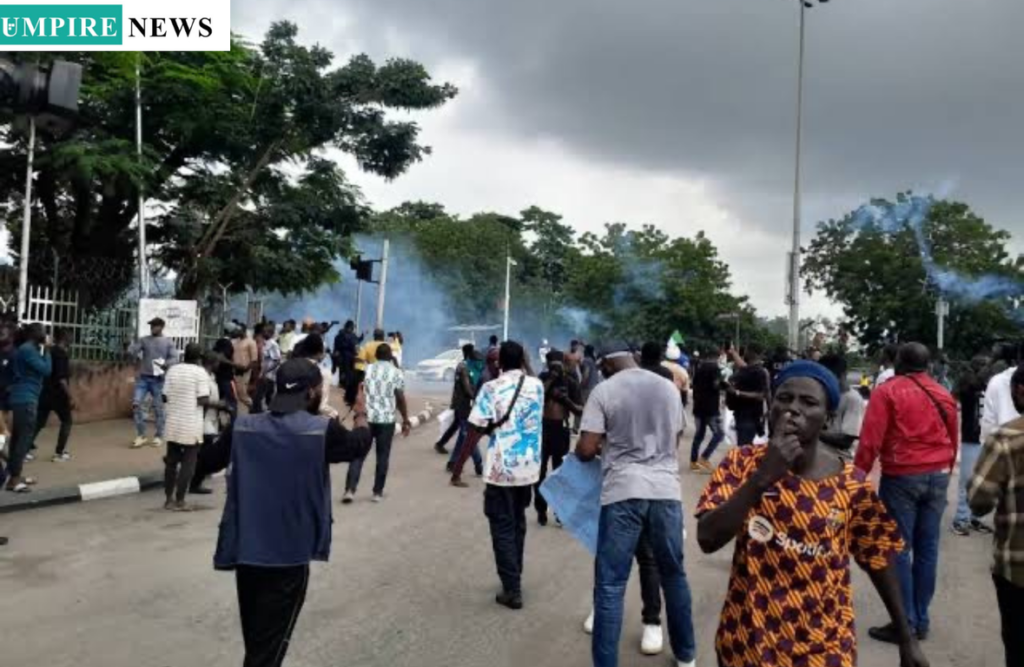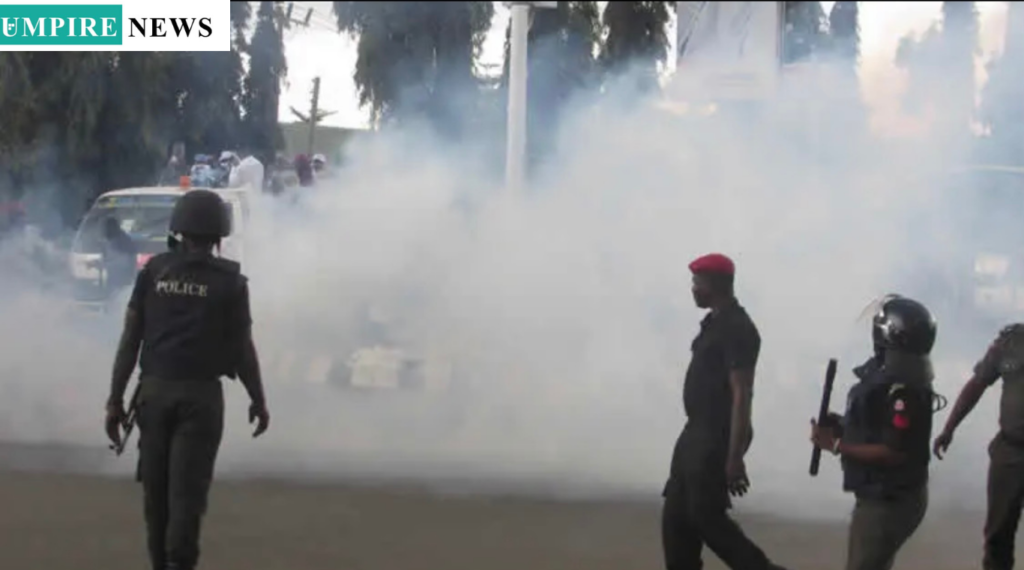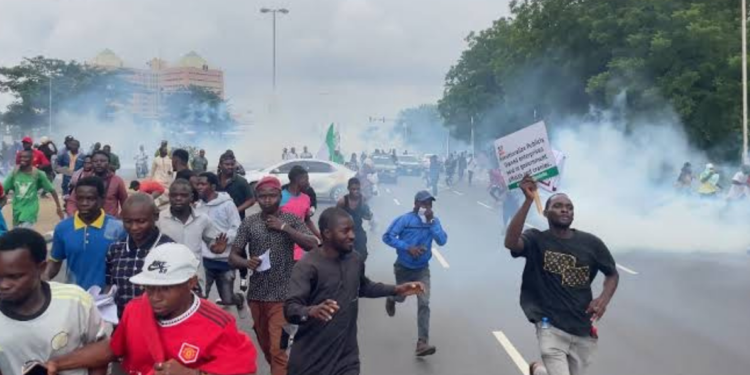On Tuesday, operatives of the Nigeria police force in Abuja used teargas canisters to break up a protest by young people unhappy with the rising cost of living.
The demonstration highlighted widespread frustration among the youth, who are increasingly burdened by economic challenges.
The protesters gathered at the Berger roundabout around 7 a.m., a strategic location known for its heavy traffic and visibility.
Their march toward Eagles Square was meant to draw attention to their demands for government action on economic issues.

Many young Nigerians expressed their feelings of hopelessness and anger as they chanted slogans and held placards calling for change.
The decision by the police to intervene came swiftly, with officers using tear gas to disperse the crowd. This response raised concerns about the government’s approach to handling peaceful protests.
Eyewitnesses reported that the use of force only intensified the anger among demonstrators, leading to chaos in the area.
Some protesters were seen fleeing the scene, while others stood their ground, demanding their voices be heard.
The youth participating in the protest are part of a growing movement advocating for better living conditions.
They are calling on President Bola Tinubu’s administration to address issues such as hunger, unemployment, and rising prices of basic goods.

Many young people feel that their future is uncertain and that the government is not doing enough to alleviate their struggles.
As Nigeria grapples with economic challenges, including high inflation and increased costs for essentials like food and fuel, the discontent among the youth is palpable.
Many protesters shared personal stories of how the rising costs have affected their daily lives, from being unable to afford meals to struggling with tuition fees.
In a recent speech marking Nigeria’s Independence Day, President Tinubu acknowledged the economic difficulties faced by citizens.
He assured the public that his administration is implementing measures aimed at reducing the cost of living.
However, many protesters remain skeptical about the effectiveness of these measures, arguing that immediate action is needed rather than promises.
The clash between police and protesters on Tuesday serves as a stark reminder of the growing frustration among Nigerians, particularly the youth, who are demanding accountability and change.
As the situation develops, it is clear that the government will need to engage with its citizens to find solutions to the pressing economic issues facing the country.
In the coming days, it will be essential for the government to listen to the concerns of its citizens and to take tangible steps toward improving the economic landscape.
The youth of Nigeria are determined to make their voices heard, and the outcome of their protests could shape the future of the nation.


































